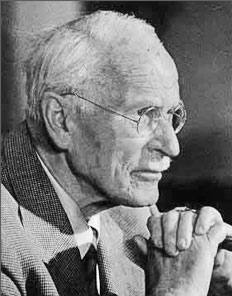
About C.G. Jung
Dr. Carl Gustav Jung (1875-1961) was a Swiss psychiatrist who pioneered psychoanalysis (along with Sigmund Freud) and deepened and extended the field. Many of Jung’s ideas have entered mainstream thought and influence how we think about ourselves today.
Jung was already a prominent psychiatrist at the famed Burgholzi Clinic in Zurich when he read Freud’s "Interpretation of Dreams." Jung wrote to Freud, suggesting that Jung’s research might provide scientific corroboration of Freud’s theories of the unconscious. Jung had found that complexes (unconscious emotional reactions) organize normal functioning as well as symptoms, and could function outside conscious awareness.
After a period of intense collaboration, their relationship ended as Jung developed psychological theories that differed from Freud’s. For example, Jung recognized the universal importance of the unconscious through symbols that appear in dreams, myths, rituals and traditional tales. Jung realized the unconscious was the wellspring of creativity and growth.
The break with Freud began a six-year period of personal crisis that Jung came to call his confrontation with the unconscious. Jung chronicled this period in his "Red Book," a large, richly illustrated volume that was recently published. His experience became the foundation for a lifetime of work that embraced wide-ranging studies, travels, and lectures that mapped human dynamics in their complexity and depth.
Jung understood the importance of psychological development in adults and worked face-to-face with his patients in a process of mutual discovery. He felt people were motivated by more than sexual drive, most significantly by an innate desire to realize their potential, the goal of Jung’s psychoanalytic method.
Jung also developed the concept of typology, which introduced introversion and extraversion and identified major cognitive functions. (The widely used Myers-Briggs Type Indicator [MBTI] is based on Jung’s theory.) Jung contributed the theory of synchronicity, meaningful “coincidental” connections, and focused as much on a person’s future as on his past. His extensive theoretical works constitute a comprehensive understanding of conscious and unconscious processes.
What is Jungian Analysis?
While most psychologies prioritize disturbances in outer life, Jungian analysis includes the inner self to achieve balance between the demands of life in the external world and the need for a meaningful internal world. Jungian analysis goes beyond the relief of symptoms to seek their symbolic meaning and unseen opportunities for growth. It honors depth, complexity and wholeness.
People may engage in an analytic process due to emotional distress or because they feel a persistent need for greater meaning and self-discovery. An initial period of psychotherapy can also segue into a more analytic process in which the emphasis is on working deeply rather than quickly.
Jungian therapy places particular value on working with dreams. The self-discovery that is the heart of the analytic process depends on connection with your unconscious, and dreams provide a nightly pathway to those unknown parts of yourself that inform and enlarge your waking life.
Careful attention to dreams and complexes (ingrained ways of feeling and behaving charged by emotion) increases understanding of the unconscious influences in your life. Unrecognized or denied aspects of your personality can then be recognized and integrated into consciousness. This integrative process helps us feel more whole.
Wholeness, or individuation, is the goal of the psychoanalytic process. It is characterized by an awareness of an abiding sense of self, steady presence in the world, and aliveness even in the face of difficulties. The analytic process fosters the discovery of your innate potential and allows it to unfold so you can become who you were truly meant to be.
What is a Certified Jungian Analyst?
Only someone who has graduated from a Jungian training program is a certified Jungian analyst. This training takes years to complete and requires personal analysis and supervision as well as the acquisition of a wide-ranging body of knowledge. Formal studies include Jungian theory, clinical psychology, mythology, religion, and cultural dynamics.
Analysts were originally trained by C.G. Jung and his close colleagues. The focus of their training was years of personal analysis and clinical supervision, as well as attending a variety of seminars led by Jung. As the number of those wishing to become analysts increased, Jung founded the C.G. Jung Institute in Switzerland in 1948. Since then, training centers have been founded elsewhere in Europe, in Australia, Israel, and the Americas. Mentor-based training is also made available to individuals around the world who do not have access to institutes.
Listen to the podcast “What is Unique About Jungian Analysis?”
PAJA Non-discrimination Statement
PAJA respects diversity, pledges equity, and seeks inclusion in its admissions processes, administrative decisions, and interpersonal relations. We strive for personal and cultural sensitivity in all our endeavors. We are committed to listening, learning, and contributing to greater understanding of how racism and other forms of discrimination exist as shadow: in ourselves, our communities, our country and our world.
As Jungians, we endeavor to recognize, understand and admit shadow into consciousness. We are therefore committed to acting in accordance with the high value we place on the value of affiliation, openness, and interest in the Other within or in the external world. We promote sensitivity and knowledge about oppression and its effects. Should conflicts arise, we will endeavor to resolve them in a transparent, conscientious, and caring manner.
We will prevent, confront, or eliminate discrimination on the basis of race, ethnicity, national origin, color, sex, sexual orientation, gender identity or expression, age, marital or military status, political belief, religion, immigration status, or disability.
Read more about the PAJA Non-discrimination Policy (PDF).
PAJA Officers and Committee Chairs
Carol Walden